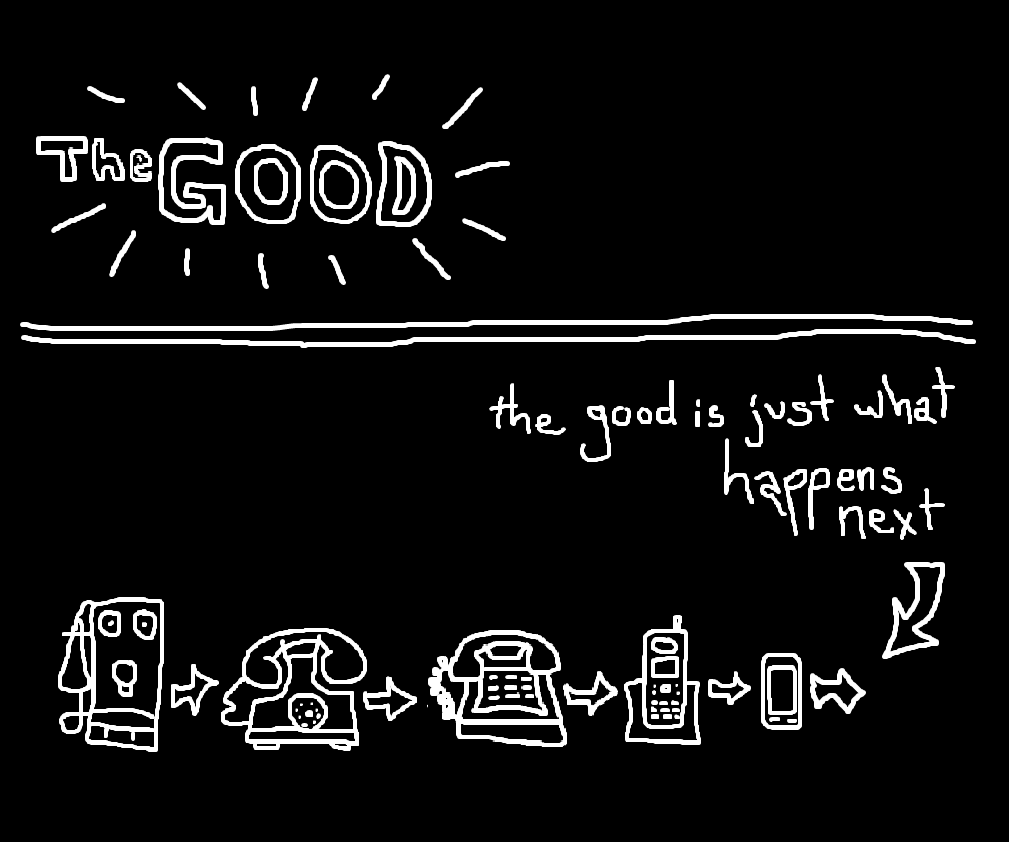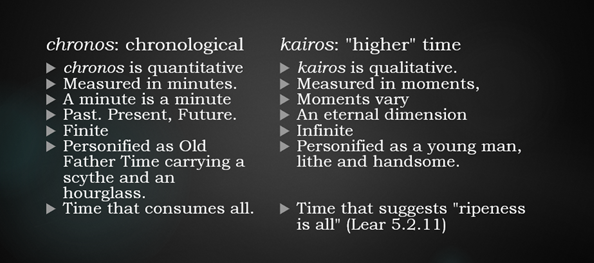Understanding Worldview (2)
What can you spend, save and waste?
I asked my students this question and the answer is about 50/50–money and time.
You’d expect people to say money because that’s the right answer. In what way is time anything like money?
They are not alike at all, but we use exactly the same verbs to describe what we do with them. You don’t spin a banana, or peal a yarn. You don’t run with petunias and plant scissors. Yet somehow we’ve managed to manage time as if it were something like money.
Time as Commodity
Richard Lewis explains in “How Different Cultures Understand Time“:
For an American, time is truly money. In a profit-oriented society, time is a precious, even scarce, commodity. It flows fast, like a mountain river in the spring, and if you want to benefit from its passing, you have to move fast with it. Americans are people of action; they cannot bear to be idle.
This view of time is by no means universal. At a social gathering a few years ago, a Cameroonian man said to my wife , “You people . . . ” (By this he, of course, meant you Americans.) “You people have such a strange way of thinking about time. You think of it as something you can grasp, something you can hold in your hand.”
Linear Time
For North Americans and most northern Europeans, time is linear. It’s a line, a time line, with evenly spaced hash marks designating the minutes and hours, days and years. This line extends into both the past and the future and in the middle is a point called the present. The line of time continuously slides at a constant speed through the present from right to left. On the future side of the present we affix plans and promises–commitments to others and to ourselves as to what we will do by particular points on the time line. In our culture, we focus a lot on the future–in both hope and fear.
“Africa Time”
I can’t pretend to know anything firsthand about what is called “Africa time,” but one of the pastors at my church was born and raised in Kenya. He tells me that in Africa people aren’t governed by the clock, rather they take the view that “things will happen when they happen.”
Here, if I arrange to call a friend at 3:00–I call him at 3:00. In Africa, my friend says, “I would be crazy to expect the call at 3:00, because 3:00 really means ‘sometime in the afternoon,'” and it is not a surprise if the call didn’t come in at all. That’s OK, because “tomorrow is another day.”
Why this seeming irresponsibility in keeping appointments and living up to agreements?
It’s all about relationships.
In African culture almost everything is about relationships. My pastor explained, “If I were on my way somewhere and I encountered my friend Trent, I would stop and have a conversation.” A present conversation is too important to cut off before it’s naturally concluded–until then, there is no other place to be.
African time bends and stretches according to the present relational needs. It matters not what a clock might say. Africa is a big continent and it’s got many different cultural groups, so generalizations are dangerous, but there is apparently some commonality in how time is conceived–and not only in Africa, but in Latin America as well.
[click_to_tweet tweet=”In our culture we consider an event to be a component of time whereas other cultures often consider time to be a component of the event. #time #LinearTime #TimeasCommodity #LatinTime #AfricanTime #WasteofTime #Boredom” quote=”In our culture we consider an event to be a component of time whereas other cultures often consider time to be a component of the event.”]
Boredom
Interestingly, in our culture, we suffer from boredom if we have too much time. We suffer stress if we have too little.
I asked my friend if, in the absence of mechanical time, Africans experience boredom and stress. He said that an African person will be bored if they are alone, and experience stress when there is a brokenness in their community. Again, it comes down to the primacy of relationships.
I’m not sure if the African conception of time is morally superior to mechanical time, but I think, with its focus on relationships, that it might be. But we have to admit that there are also many advantages to our Western notion of time; I love the timeliness by which German trains operate.
When it comes to conceptions of time, whether Christian or not, residents of Northern Europe and North America have a “secular” view of time. We should, therefore, be hesitant to claim that we have a “Christian” or a “Biblical” worldview–because in our understanding of time, we do not. We have a pretty “secular” worldview.









